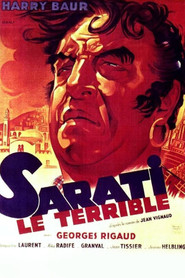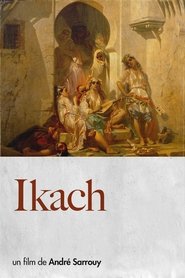Rachid Ksentini (رشيد قسنطيني) real name Rachid Belakhdar, Algerian singer and theater man, born November 11, 1887 in the Casbah of Algiers and died July 4, 1944 in Algiers.
He left school very early to work as an apprentice cabinetmaker with his father in Bab El Oued until 1914, originally from Constantine. On the eve of the First World War, he enlisted as a sailor in the merchant navy and left for France. The boat he boarded was torpedoed by German naval forces. The survivors were fished out by the English navy which then transferred them to Marseille. Through his profession as a sailor, he experienced Europe, North America, China and India.
He returned to Algeria but for a brief stay. He returns to France. In 1925, he returned to the country and the same year met Allalou in a café, who asked him to join his theater troupe Zahia Troupe.
Their collaboration resulted, among other things, in the presentation of the play “Zouadj Bou 'Akline” on October 26, 1926, which marked Rachid Ksentini's first appearance on the stage. A performance that captivated the audience. The collaboration of the two men continues with adaptations by Allalou of sequences from The Thousand and One Nights in which Rachid Ksentini obtains the leading roles.
In 1927, the latter created with Djelloul Bachedjerrah, the El Djazaïr troupe which dissolved shortly after. Certainly, Rachid Ksentini has established himself especially in the theater. But, at the same time, he invested in humorous songs with a social background. Many of his songs are composed of music drawn from national heritage.
He returned to work under the aegis of the music company El Moutribia, managed by Mahieddine Bachetarzi. In 1928, he wrote a play which was a great success, “Zouadj Bou Borma”. From this time, he knew a young actress, Marie Soussan, who became his companion and partner on stage. They formed an artistic couple until 1934. The sketches they performed together were very successful.
Rachid Ksentini died on August 4, 1944. He was married to Marguerite Sevigné. The couple divorced shortly before the artist's death.
He left school very early to work as an apprentice cabinetmaker with his father in Bab El Oued until 1914, originally from Constantine. On the eve of the First World War, he enlisted as a sailor in the merchant navy and left for France. The boat he boarded was torpedoed by German naval forces. The survivors were fished out by the English navy which then transferred them to Marseille. Through his profession as a sailor, he experienced Europe, North America, China and India.
He returned to Algeria but for a brief stay. He returns to France. In 1925, he returned to the country and the same year met Allalou in a café, who asked him to join his theater troupe Zahia Troupe.
Their collaboration resulted, among other things, in the presentation of the play “Zouadj Bou 'Akline” on October 26, 1926, which marked Rachid Ksentini's first appearance on the stage. A performance that captivated the audience. The collaboration of the two men continues with adaptations by Allalou of sequences from The Thousand and One Nights in which Rachid Ksentini obtains the leading roles.
In 1927, the latter created with Djelloul Bachedjerrah, the El Djazaïr troupe which dissolved shortly after. Certainly, Rachid Ksentini has established himself especially in the theater. But, at the same time, he invested in humorous songs with a social background. Many of his songs are composed of music drawn from national heritage.
He returned to work under the aegis of the music company El Moutribia, managed by Mahieddine Bachetarzi. In 1928, he wrote a play which was a great success, “Zouadj Bou Borma”. From this time, he knew a young actress, Marie Soussan, who became his companion and partner on stage. They formed an artistic couple until 1934. The sketches they performed together were very successful.
Rachid Ksentini died on August 4, 1944. He was married to Marguerite Sevigné. The couple divorced shortly before the artist's death.
Show more expand_more
keyboard_double_arrow_down

